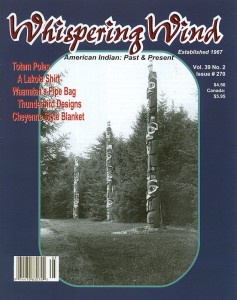 Carol Smallwood has been quietly creating a name for herself over the years, and I say quietly for a couple of reasons. First, she’s a librarian! With both an MLS and an MA, she has focused her writing on resources for librarians. But I also say quietly because she has edited a couple of phenom publications, taking the back seat to the subject matter, as great editors do. Her latest collection is one not to be missed by any writer who is interested in learning more about publishing venues. That’s right: I said Writer. Not just Librarians.
Carol Smallwood has been quietly creating a name for herself over the years, and I say quietly for a couple of reasons. First, she’s a librarian! With both an MLS and an MA, she has focused her writing on resources for librarians. But I also say quietly because she has edited a couple of phenom publications, taking the back seat to the subject matter, as great editors do. Her latest collection is one not to be missed by any writer who is interested in learning more about publishing venues. That’s right: I said Writer. Not just Librarians.
The book is Writing and Publishing: The Librarian’s Handbook (ALA Editions 2010), but any non-librarian writer who passes this book by because of that subtitle is making a huge mistake. This book is chock full of some of the most practical, hands-on, I’ve-lived-this advice from writers about the most wide array of publishing venues I have ever read in a single collection. There are 46 contributors to this collection, condensed into less than 200 pages. This is my kind of “guide” – it gets directly to the nitty-gritty of each individual topic in 92 (yes, you read me right) essays.
Granted, some of the topics covered are Librarian-specific, such as “MLS, MFA: The Working Librarian Pursuing a Degree in Creative Writing” (Colleen S. Harris), “Partners: Helping Your Hometown Paper Promote the Local Library” (Beth Nieman), and “Children’s Librarians! Use Your Skills to Fill Your Collection Gaps” (Margaret Read MacDonald). Although, I did find the information insightful and even helpful as someone who works closely with librarians to help promote events, build collections, etc. But there are plenty more contributions that seem library-specific, like “Blogging: Writing Op-Eds” (Michale Dudley) and “The Poet-Librarian: Writing and Submitting Your Work” (Colleen S. Harris) that make consideration for the role/career of librarian, but could just as easily be applicable to anyone with any other career. Specifically for librarians, however, is insight in how to participate in these publishing venues either as part of the job to help promote the library/collections, or as a separate activity and the politics of keeping your writing life clear from that of public or institutional jobs and the overreaching restrictions those sometimes have.
The breadth of topics in this collection is most astounding. It’s not just a something-for-everyone collection, it’s an a-lot-for-anyone collection. For librarians who want to do ANY kind of writing, this book is a no-brainer to get, read, and keep in your personal resource library. For others – anyone interested in writing to publish, this is a resource to take a look at. There are plenty of other “publishing” resources out there – but in my recent research for a college-level course in professional writing, finding a book as comprehensive in voices and topics as this one is RARE. I wouldn’t pass up using this as a resource with students interested in publishing. For students? Heck, for anyone trying to step into and make sense of where to get started or different directions to take in publishing.
Here’s just an outline of the content:
Part 1 – Why Write
Part 2 – Education of a Writer
Getting Started
Writing with Others
Revise, Revise, Revise
Lessons From Publishing
Part 3 – Finding Your Niche in Print
Books
Newsletters and Newspapers
Reviewing
Magazines and Professional Journals
Essays
Textbook Writing
Children’s Literature
Writing on Specific Subjects
Part 4 Finding Your Niche Online
Part 5 Maximizing Opportunities
For a more detailed outline of content, visit the publisher’s website: Writing and Publishing
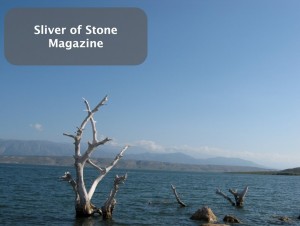 Under the guidance of Founding Editor M.J. Fievre, Sliver of Stone is a bi-annual, online literary magazine dedicated to the publication of work from both emerging and established poets, writers, and visual artists from all parts of the globe. Other hands on deck for Sliver of Stone, “the talented progeny of the Creative Writing Program at Florida International University in Miami, Florida” include: Corey Ginsberg,nonfiction editor; Fabienne S. Josaphat, fiction editor; Marina Pruna, Laura Richardson, Patricia Warman, poetry editors; Holly Mayes, art editor; and Abigail Sedaris, webmaster.
Under the guidance of Founding Editor M.J. Fievre, Sliver of Stone is a bi-annual, online literary magazine dedicated to the publication of work from both emerging and established poets, writers, and visual artists from all parts of the globe. Other hands on deck for Sliver of Stone, “the talented progeny of the Creative Writing Program at Florida International University in Miami, Florida” include: Corey Ginsberg,nonfiction editor; Fabienne S. Josaphat, fiction editor; Marina Pruna, Laura Richardson, Patricia Warman, poetry editors; Holly Mayes, art editor; and Abigail Sedaris, webmaster.
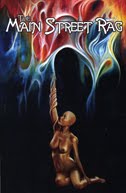
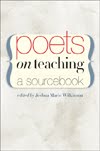
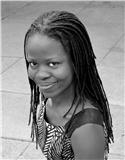
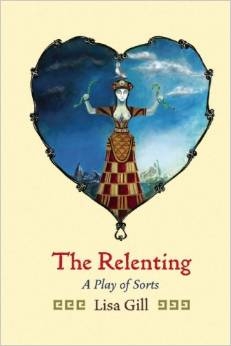 Not every writer could make a face-down with a rattlesnake in her Moriarty living room “a primal encounter waiting to be interpreted,” yet that’s precisely what Albuquerque poet Lisa Gill has done. Her introduction to the play, “The Catalyst & the Evolution,” contains one of the best descriptions of the writing process I’ve read: “Ecdysis is the word for the skin sloughing snakes do and might as well be the word for the process writers go through with revisions of certain manuscripts, those texts whose life cycles demand we shed draft after draft, abandoning each accrued preconception to ultimately access deeper instinct.”
Not every writer could make a face-down with a rattlesnake in her Moriarty living room “a primal encounter waiting to be interpreted,” yet that’s precisely what Albuquerque poet Lisa Gill has done. Her introduction to the play, “The Catalyst & the Evolution,” contains one of the best descriptions of the writing process I’ve read: “Ecdysis is the word for the skin sloughing snakes do and might as well be the word for the process writers go through with revisions of certain manuscripts, those texts whose life cycles demand we shed draft after draft, abandoning each accrued preconception to ultimately access deeper instinct.” 
